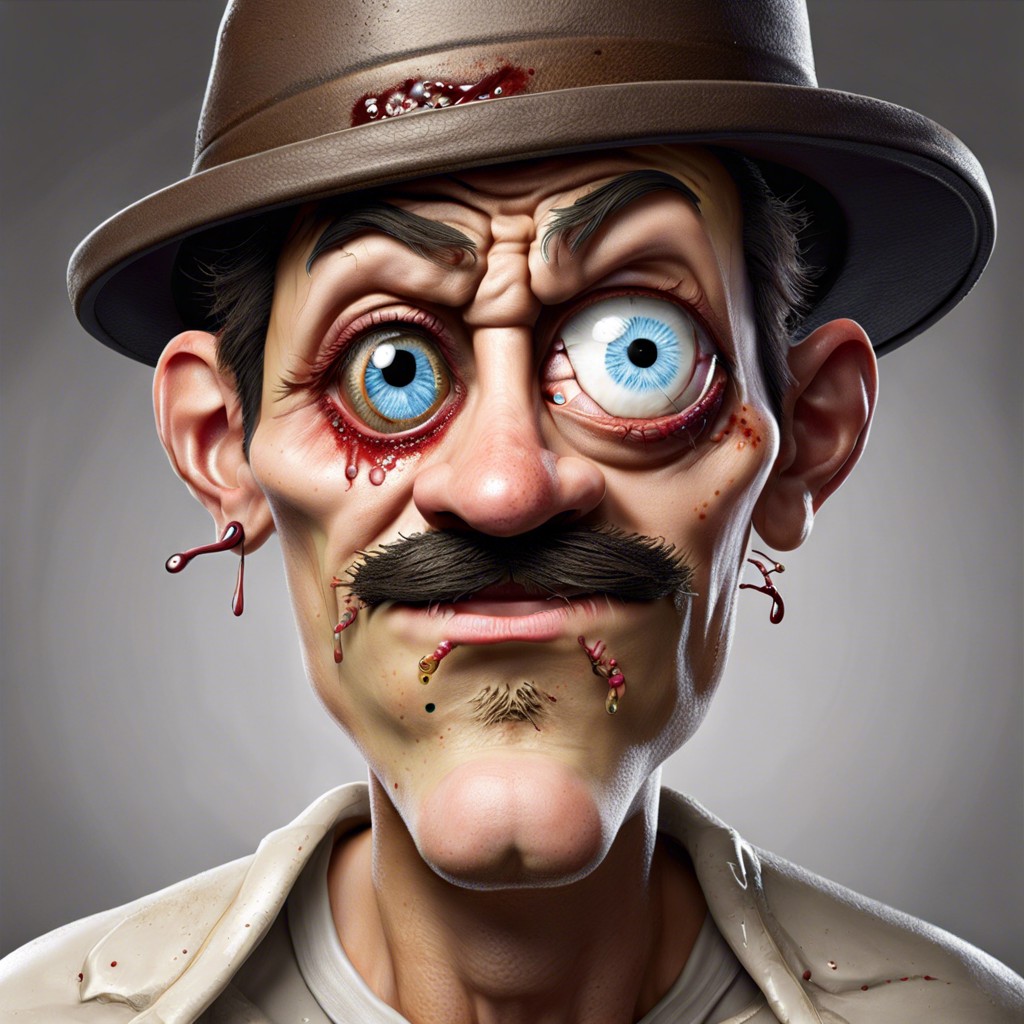If your eyes are yellow, you’ll learn the possible causes and what steps you should take next.
Ever peeked in the mirror and noticed your eyes taking on a yellowish tint? No, you’re not turning into a minion. This could be your body waving a big, yellow flag. Whether you’re bordering on a health freak-out or just a curious soul, this article unpacks the mystery behind those jaundiced peepers. We’ll cover everything from potential causes and red flags to tests, treatments, and nifty prevention tips. Stick around for the eyeball enlightenment!
Key takeaways:
- Liver malfunction can turn eyes yellow like highlighters.
- Check for symptoms: dark urine, pale stools, abdominal pain.
- Tests include blood work, ultrasounds, possibly a liver biopsy.
- Treatment tailored to cause: meds, lifestyle changes, hydration.
- Prevention: love your liver with balanced diet and hydration.
Potential Causes

Liver malfunction can make your eyes as yellow as a highlighter. When the liver can’t process bilirubin, it accumulates and gives your eyes that jaundiced look. Picture your liver as a bouncer at a nightclub. If it slacks off, unwanted guests (bilirubin) start piling up.
Another intriguing cause is the ever-pesky gallbladder. Gallstones blocking bile ducts could turn your eyes yellow faster than a banana ripening on the kitchen counter.
Let’s not forget our frenemy, alcohol. Chronic drinking can be a major culprit by damaging liver cells. Cheers to moderation.
And of course, who could overlook an infection like hepatitis? It’s like your liver catching a really bad flu. Similar results.
Sometimes, yellow eyes might also be simply “genetics playing roulette,” passing down peculiar shades from one generation to the next.
In rare instances, certain medications or supplements are the mischievous culprits. Everything has side effects, apparently.
Lastly, let’s not ignore dehydration. It’s not just for dry skin and headaches; it could give your liver a tough time and lead to yellowing eyes.
So many culprits, so little eye white left.
When to Worry
Yellow eyes can cause quite the stir, but before you run for the hills, let’s break it down.
Check for additional symptoms: If yellow eyes are paired with dark urine, pale stools, or abdominal pain, your liver might be waving the white flag. Time to raise an eyebrow.
How long have they been yellow: A fleeting yellow tinge after a weekend of wild partying? Probably not a big deal. Something that lingers like a bad pop song? Worth investigating.
Any recent changes in medication: Some meds love messing with your liver. If you started a new medication recently, your liver might be on strike.
Dietary habits: Chowing down on too much beta-carotene-rich foods, like carrots and sweet potatoes, can give your eyes a golden hue. No danger, but maybe lay off the bunny snacks for a while.
Personal medical history: If liver disease or gallstones run in the family, stay vigilant. Yellow eyes could be the signal your body’s using to call for some help.
Ultimately, yellow eyes are like your body’s little text message. Ignoring them could mean leaving something important on ‘read’.
Diagnosis and Testing
Once you’re past the initial shock of your newfound yellow-tinted eyes, it’s time to get investigative. A healthcare professional will usually start with a thorough history and physical examination.
Next up, the blood tests. These are the Sherlock Holmes of the medical world. They’ll check your liver function, bilirubin levels, and other markers that could be contributing to the yellowing. Think of it as a microscopic treasure hunt.
Ultrasounds and other imaging techniques may come into play to visualize your liver, gallbladder, and bile ducts. It’s like getting a backstage pass to your own internal rock concert.
Sometimes, a more detailed exploration might be needed. This could involve an ERCP, which is a fancy endoscopic procedure to look at your bile ducts. Picture it as sending a tiny camera down a slide to find out what’s clogging it.
In some cases, a liver biopsy might be recommended. Yep, they might take a tiny piece of your liver for a closer look. Imagine a science class dissection, but let’s keep the “ew” factor to a minimum.
Taking these steps helps narrow down the cause and tailor a treatment plan to get you back to seeing the world in all its true colors.
Treatment Options
Addressing the underlying issue is key. That means figuring out the root cause:
Liver concerns? Doctors might suggest medications or even lifestyle changes, like cutting back on that late-night pizza binge.
Infections may require antibiotics. No, not the kind your friend swears by, but the legit, doctor-prescribed type.
For more serious conditions like anemia, treatments might involve supplements or, in some cases, blood transfusions. Yeah, it’s not as dramatic as it sounds—no vampire vibes here.
Hydration can help if dehydration’s the culprit. Sometimes, a tall glass of H2O really is the hero we didn’t know we needed.
Occasionally, surgery could enter the chat, especially for obstructions or tumors. Don’t panic, surgeons know their stuff.
And then there’s the “Mona Lisa approach”: a watchful eye (literally) and regular check-ups to monitor those pesky yellow signals.
Remember, it’s all about nipping the cause in the bud. Quick solutions often lead to brighter, non-canary-colored days ahead.
Prevention and Maintenance
Prevention often trumps cure. Give your liver some love; it’s the superstar in your body that processes all those late-night snacks and surprise tequila shots. Keep it happy with a balanced diet—yes, that means veggies and lean protein, not just another double cheeseburger.
Hydration is your friend. Water helps flush out toxins. Be that person with the trendy water bottle; it’s your best accessory.
Limit alcohol and avoid smoking. Your liver will thank you, and you’ll avoid that yellow-eyed pirate look.
Regular check-ups aren’t just for hypochondriacs. Early detection can save you a world of trouble.
Vitamins A, C, and E are more than just letters in the alphabet. They help your liver function properly. Consider them your liver’s secret weapons.




